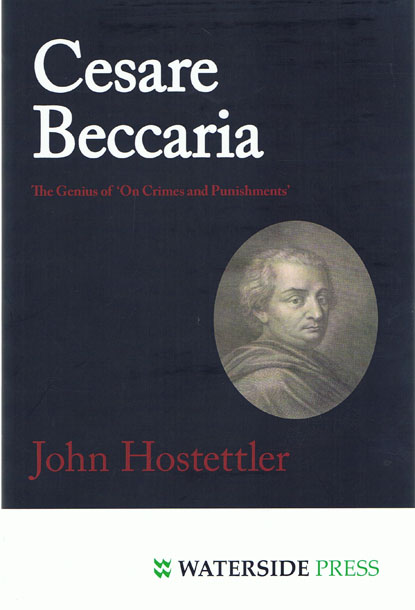
A brand new book by eminent legal biographer and historian John Hostettler. Hard on the heels of his acclaimed work with Richard Braby on Sir William Garrow, comes a further text on one of crime and punishments under-recorded and maybe unsung heroes.
In eighteenth century continental Europe penal law was barbaric. Gallows were a regular feature of the landscape, branding and mutilation common and there existed the ghastly spectacle of men being broken on the wheel. To make matters worse, people were often tortured or put to death for minor crimes (sometimes both) and often without any trial at all.
Like a bombshell, a book entitled On Crimes and Punishments, exploded onto the scene in 1764 with shattering effect. Its author was a young nobleman named Cesare Beccaria (1738-1794). A central message of that - now classic - work were that such punishments were part of 'a war of nations against their citizens' and should be abolished. It was a cri de coeur for thorough reform of the law affecting punishments and it swept across the continent of Europe like wildfire, being adopted by one ruler after another. It even crossed the Atlantic to the new United States of America, in the hands of Thomas Jefferson.
In a wonderful sentence which concludes Beccaria's book, he sums up matters as follows: 'In order that every punishment may not be an act of violence, committed by one man or by many against a single individual, it ought to be above all things public, speedy, necessary, the least possible in the given circumstances, proportioned to its crime [and] dictated by the laws'.
A welcome addition to the Waterside Press list of biographical and historical works, this new book on Cesare Beccaria - targeted to highlight matters of both universal and current relevance - will be of considerable interest to anyone wishing to trace the development of the rights of individuals charged with or convicted of crimes, and of the importance of fairness, proportionality, decency and similar matters which may be at-risk in the wrong hands. Civilising penal law remains a topical issue but it began with the subject of this work.